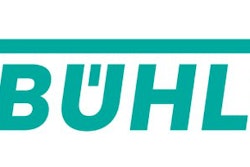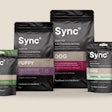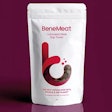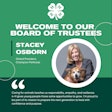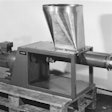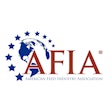
Adapted from a press release:
Icos Capital recently organized the "Accelerating Sustainability Food Systems Summit," which was held at pet food equipment maker Bühler's CUBIC Innovation Campus in Uzwil, Switzerland on February 14. The event brought together start-ups from the areas of decarbonization, precision fermentation, cell culture, and side stream valorization and alternate sustainable resources with food corporations to accelerate the transition of sustainable food systems. The partners intend to grow their ecosystem of collaboration and innovation to enable start-ups to scale up their efforts in tackling some of the most urgent and complex challenges in the food sector.
Over 30 start-ups from across Europe, the UK, and Israel pitched their innovations and discussed collaborations with corporations.
Topics covered at the event
Decarbonization refers to the process of reducing or eliminating carbon dioxide (CO2) emissions from various sources such as energy production, transportation, and industrial processes, in order to mitigate climate change. The goal of decarbonization is to transition to a low-carbon economy, where greenhouse gas emissions are minimized or eliminated entirely, and the negative impacts of climate change are reduced.
Precision fermentation is a process of growing microorganisms, such as bacteria or fungi, to produce specific molecules or products, like food ingredients or pharmaceuticals, using a controlled and optimized process. This technology has the potential to revolutionize various industries, such as food production, by providing more efficient and sustainable methods of producing certain compounds without the need for traditional agricultural methods.
Cell culture, on the other hand, refers to the process of growing animal or plant cells in a controlled environment, outside of their natural context, for various purposes. In the food industry, cell culture is being explored as a potential method for producing meat products without the need for animal agriculture. This technology has the potential to significantly reduce the environmental impact of meat production by eliminating the need for land and water resources, reducing greenhouse gas emissions, and minimizing animal welfare concerns.
Side stream valorization refers to the process of utilizing byproducts or waste streams from various industrial processes to create new products or generate energy. This approach can reduce waste and the environmental impact of industrial processes, while also creating new revenue streams for companies. For example, food waste can be converted into biofuels, fertilizers, or other products, and waste heat from industrial processes can be captured and used to generate electricity.
Alternate sustainable resources refer to various sources of energy and materials that are renewable, environmentally friendly, and economically feasible. Examples of alternate sustainable resources include solar and wind power, biofuels, hydrogen, and sustainable forestry and agriculture practices. The development and adoption of these resources is essential to achieving a sustainable and low-carbon economy.
About Icos Capital and Bühler's CUBIC Innovation Campus
Icos Capital is a venture capital firm that invests in companies that are focused on developing solutions to address climate change and promote sustainability. The firm may have organized this summit as a way to bring together key stakeholders in the food systems industry to discuss new ideas and innovations, share best practices, and network with potential partners and investors.
“Our goal at Icos Capital is to identify and invest in next-level innovations to accelerate sustainability,” Nityen Lal, general partner at ICOS Capital, said in a press release. “Our model of collaborative venturing brings start-ups specialized in sustainable food, circular economy, sustainable industry, and decarbonization into win-win partnerships with corporates, supporting their growth. The event here at Bühler’s CUBIC Innovation Campus was everything we expected it to be: forward-thinking entrepreneurs with brilliant ideas to solve major problems, investors ready to identify the next start-up to push forward, and industry partners equipped with the know-how and technology to accelerate positive impact at scale.”
Bühler's CUBIC Innovation Campus is a research and development center that focuses on developing sustainable technologies for the food and feed industry. Hosting the summit at this facility may have provided attendees with an opportunity to see cutting-edge technologies and research in action, and to learn from experts in the field.
Bühler, a solution partner for the food and mobility industries, works with selected partners, such as ICOS, to build a global network of partnerships that support the transition to a sustainable food system and support industry adoption of new sustainable solutions and practices.
“With established supply chains and market access, we believe that corporates in the room can play a crucial role in the journey of start-ups and enable them to scale both their business and their sustainable impact significantly faster,” Ian Roberts, CTO of Bühler, said in a press release.



